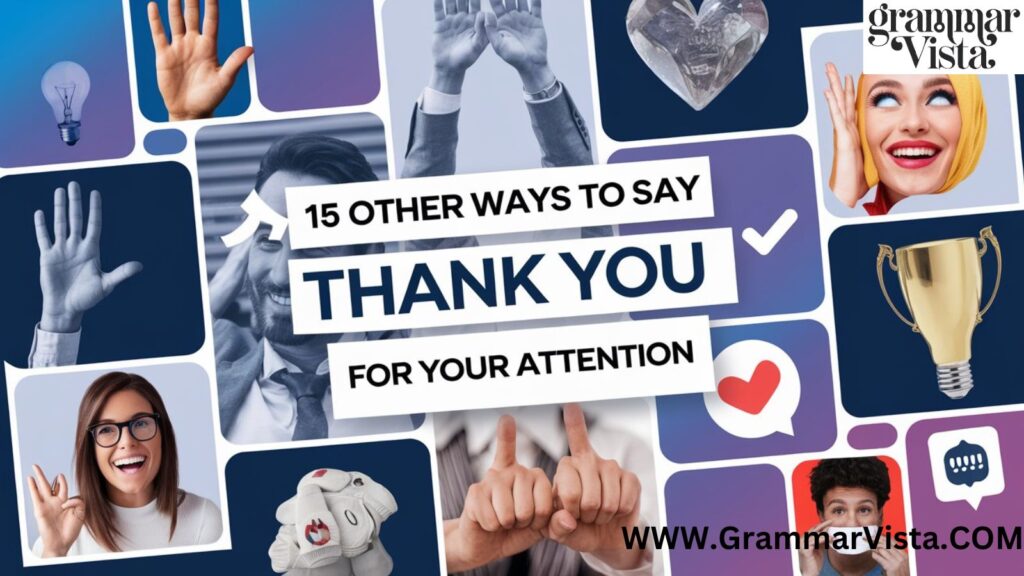Ever feel like you’re stuck in a gratitude rut, using the same old “thank you” phrases over and over? Let’s shake things up! Here are eight fresh ways to express your appreciation when someone’s given you their undivided attention. Whether you’re wrapping up a presentation, ending a heart-to-heart, or just want to acknowledge someone’s focus, these alternatives will help you convey your thanks with style.
Dining out can be a delightful experience. The joy of sharing a meal with friends or family is priceless. But, high menu prices can sometimes put a damper on the fun. This is where affordable dining comes in. Understanding menu prices can help you enjoy meals without breaking the bank.
Is It Professional to Say “Thank You For Your Attention”
Absolutely! It is professional to say “thank you for your attention”. This phrase strikes a balance between formality and gratitude. It’s widely accepted in business settings, showing respect for your audience’s time and focus. However, tailoring your thanks to the specific context can make an even stronger impact. Consider the situation and your relationship with the listeners when choosing your words.
Here Are 15 Others Ways to Say “Thank You For Your Attention”
- “I Appreciate Your Focus”
- “Your Attention Means the World to Me”
- “Thanks for Lending an Ear”
- “I’m Grateful for Your Consideration”
- “Your Engagement is Appreciated”
- “Thank You for Your Undivided Attention”
- “I Value Your Time and Focus”
- “Your Attentiveness is Commendable”
- “Your Rapt Attention Didn’t Go Unnoticed”
- “I’m Touched by Your Unwavering Focus”
- “Your Keen Interest Was Evident”
- “I’m Honored by Your Attentiveness”
- “Your Mindful Listening Made All the Difference”
- “Your Concentration Was Impressive”
- “Thank You for Being So Present”
1. “I Appreciate Your Focus”
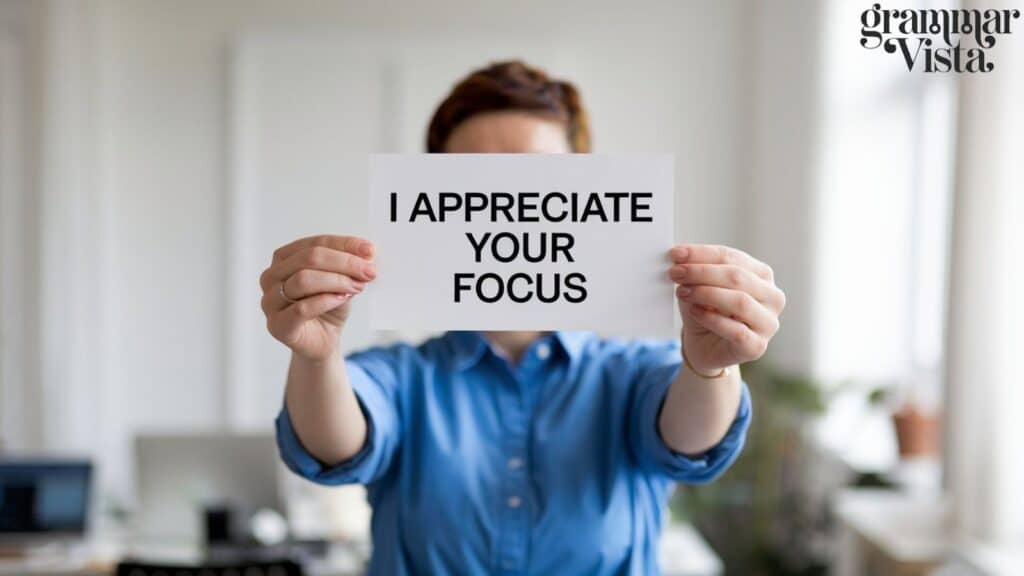
When someone’s really zeroed in on what you’re saying, acknowledging their concentration can make a big impact. This phrase recognizes the mental effort they’ve put into listening.
Scenario: Imagine you’ve just finished presenting your innovative idea for the best Chinese restaurants app at a startup pitch meeting. As you wrap up, you notice that investor Sarah hasn’t taken her eyes off you the entire time, nodding along and jotting notes. You might say:
“Sarah, I appreciate your focus throughout my presentation. Your attentiveness means a lot.”
Read More about Business’ or Business’s?
2. “Your Attention Means the World to Me”
This heartfelt expression conveys how much you value their undivided attention. It’s perfect for more personal or emotional conversations.
Scenario: You’ve just poured your heart out to your best friend, Alex, about your recent breakup. Alex listened without interruption, offering silent support. As you finish, you could say:
“Alex, your attention means the world to me. I felt truly heard, and that’s exactly what I needed right now.”
3. “Thanks for Lending an Ear”
This casual, friendly phrase is great for informal situations. It acknowledges that the person took the time to really listen to you.
Scenario: You’ve been venting to your coworker, Jamie, about a challenging project over lunch at one of the best Chinese restaurants in town. As you head back to the office, you might say:
“Jamie, thanks for lending an ear. It really helped to talk it out over those dumplings!”
4. “I’m Grateful for Your Consideration”
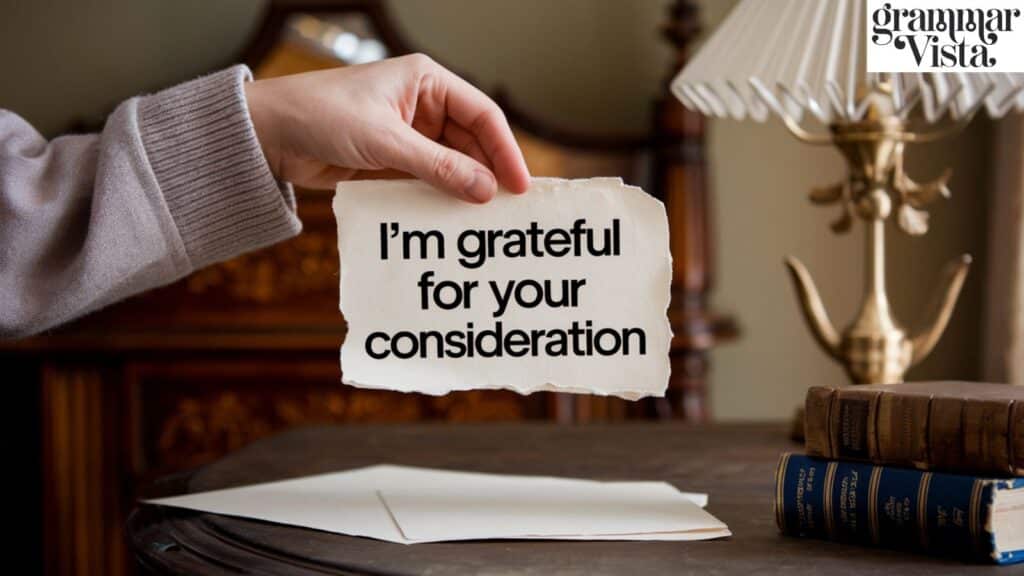
This more formal expression works well in professional settings or when discussing serious matters. It recognizes that the person has given thoughtful attention to your words or ideas.
Scenario: You’ve just finished presenting a proposal for a new employee wellness program to your company’s HR director, Ms. Thompson. Her focused questions showed she was really engaging with your ideas. You could conclude with:
“Ms. Thompson, I’m grateful for your consideration of this proposal. Your thoughtful questions have given me even more to ponder as we move forward.”
5. “Your Engagement is Appreciated”
This phrase acknowledges not just passive listening, but active participation in the conversation or presentation.
Scenario: You’ve been leading a workshop on innovative cooking techniques at a convention for the best Chinese restaurants in the country. Throughout your demo, Chef Lee has been asking insightful questions and offering his own experiences. As you wrap up, you might say:
“Chef Lee, your engagement is appreciated. Your questions and insights really elevated our discussion today.”
6. “Thank You for Your Undivided Attention”
This classic phrase gets a boost by adding “undivided,” emphasizing that the person gave you their complete focus.
Scenario: You’ve just finished giving a TED talk on the cultural significance of dining at the best Chinese restaurants. Despite the large audience, you noticed one attendee, Dr. Chen, who seemed particularly engrossed. After the talk, you could approach her and say:
“Dr. Chen, thank you for your undivided attention during my talk. Your engaged expression kept me motivated throughout my speech.”
7. “I Value Your Time and Focus”
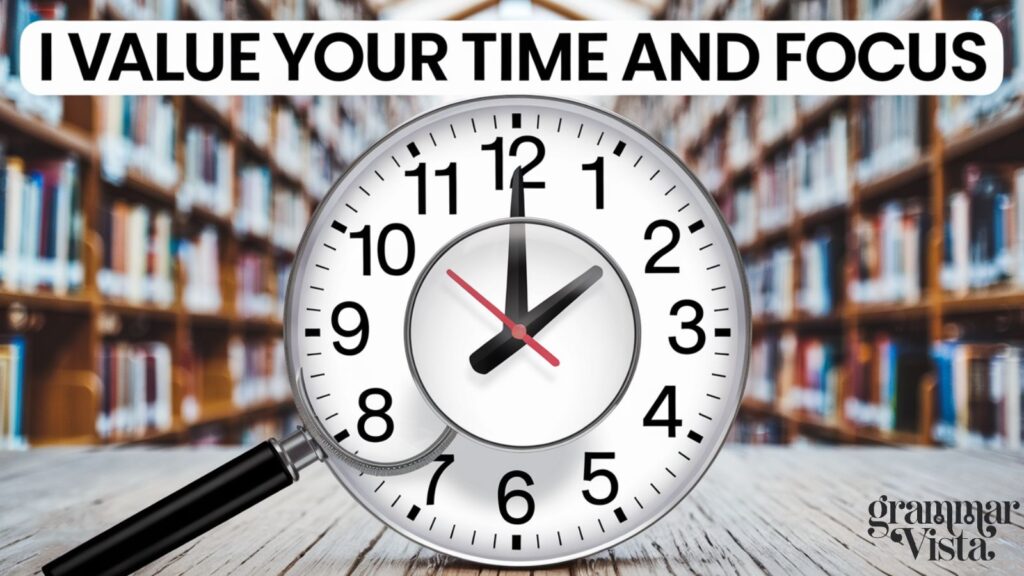
This expression acknowledges both the time invested and the mental energy expended in paying attention.
Scenario: You’ve just concluded a long strategy meeting with your team, where you discussed plans for launching a food critic app focusing on the best Chinese restaurants in each city. Despite the late hour, your colleague Mark remained alert and contributive. You might end the meeting by saying:
“Team, and Mark in particular, I value your time and focus today. Your sustained engagement, even as we went overtime, is truly appreciated.”
You might be interested in Thomas’ or Thomas’s?
8. “Your Attentiveness is Commendable”
This slightly more formal phrase is perfect for recognizing someone’s exceptional focus, especially in challenging circumstances.
Scenario: You’re a teacher who’s just finished a complex lesson on Chinese cuisine history to a class of culinary students. Despite the heavy content, student Maria remained fully engaged, asking pertinent questions throughout. As class ends, you could say:
“Maria, your attentiveness is commendable. Maintaining such focus on a Friday afternoon is no small feat!”
Certainly! Let’s continue our exploration of expressive ways to show gratitude for someone’s attention. Here are seven more alternatives, starting from number 9:
9. “Your Rapt Attention Didn’t Go Unnoticed”
This phrase acknowledges that you’ve observed their intense focus, making it feel more personal and observed.
Scenario: You’ve just finished giving a virtual seminar on the evolution of Chinese cuisine, focusing on how the best Chinese restaurants have adapted traditional recipes. Despite the online format, you noticed participant Raj was visibly engaged throughout, leaning in and nodding. In a follow-up email, you might write:
“Raj, your rapt attention didn’t go unnoticed during the seminar. Your visible engagement kept me energized throughout the presentation.”
10. “I’m Touched by Your Unwavering Focus”
This heartfelt expression conveys a deeper emotional appreciation for their sustained attention.
Scenario: You’re a counselor who’s just finished a challenging therapy session with a couple, the Johnsons. Despite the emotional topic, both partners maintained their focus on understanding each other. As you wrap up, you might say:
“Mr. and Mrs. Johnson, I’m touched by your unwavering focus today. Your commitment to listening to each other, even when it was difficult, is truly commendable.”
11. “Your Keen Interest Was Evident”
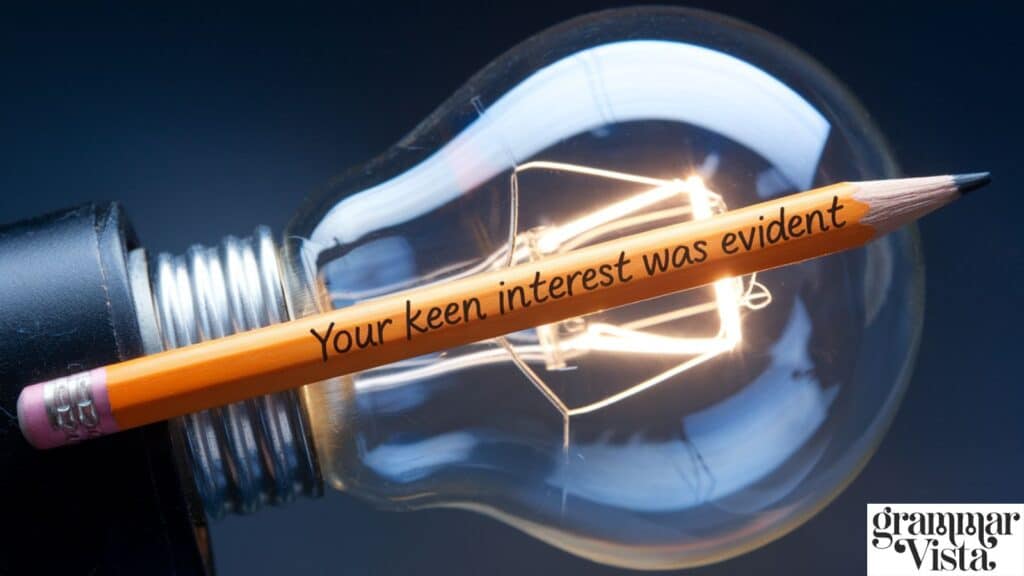
This phrase not only acknowledges their attention but also their apparent enthusiasm or curiosity about the topic.
Scenario: You’re a food critic giving a talk at a culinary school about your experiences reviewing the best Chinese restaurants across the country. Student Ming asked several insightful questions throughout. As you conclude, you could say:
“Ming, your keen interest was evident throughout the talk. Your questions showed a real passion for understanding the nuances of Chinese cuisine.”
12. “I’m Honored by Your Attentiveness”
This more formal expression conveys a sense of respect and appreciation for their focused attention.
Scenario: You’ve just presented your doctoral thesis on the impact of globalization on traditional Chinese cooking techniques to a panel of esteemed professors. Despite the lengthy presentation, Professor Zhang remained fully engaged. You might conclude with:
“Professor Zhang, I’m honored by your attentiveness throughout my defense. Your engaged presence made this experience even more meaningful.”
13. “Your Mindful Listening Made All the Difference”
This phrase emphasizes the quality of their attention, highlighting how it positively impacted the interaction.
Scenario: You’ve just had a heart-to-heart with your sibling about a personal dilemma involving your career in the restaurant industry. Throughout the conversation, they listened without judgment, asking thoughtful questions. You could express your gratitude by saying:
“Sis, your mindful listening made all the difference. I feel so much clearer now about whether to accept that head chef position at the new fusion Chinese restaurant.”
14. “Your Concentration Was Impressive”
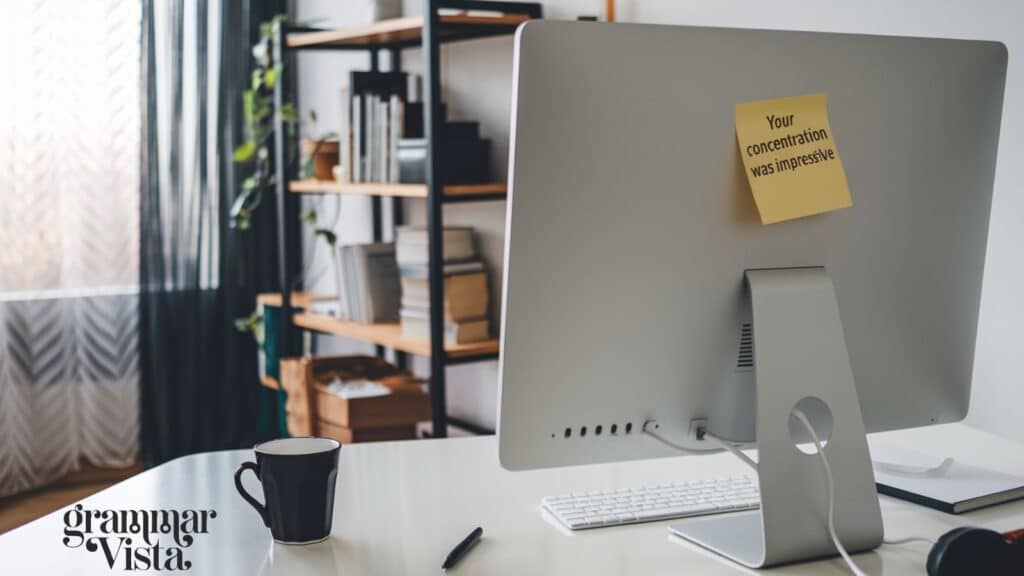
This straightforward compliment acknowledges their ability to maintain focus, especially useful in situations where concentration might have been challenging.
Scenario: As a tourist guide, you’ve just finished a long, detailed tour of Beijing’s historic districts and best Chinese restaurants. Despite the heat and the long walk, tourist Emma remained alert and interested throughout. You might say:
“Emma, your concentration was impressive throughout our six-hour tour. Many people’s attention wanders, but you stayed engaged even as we delved into the minutiae of Peking duck preparation!”
15. “Thank You for Being So Present”
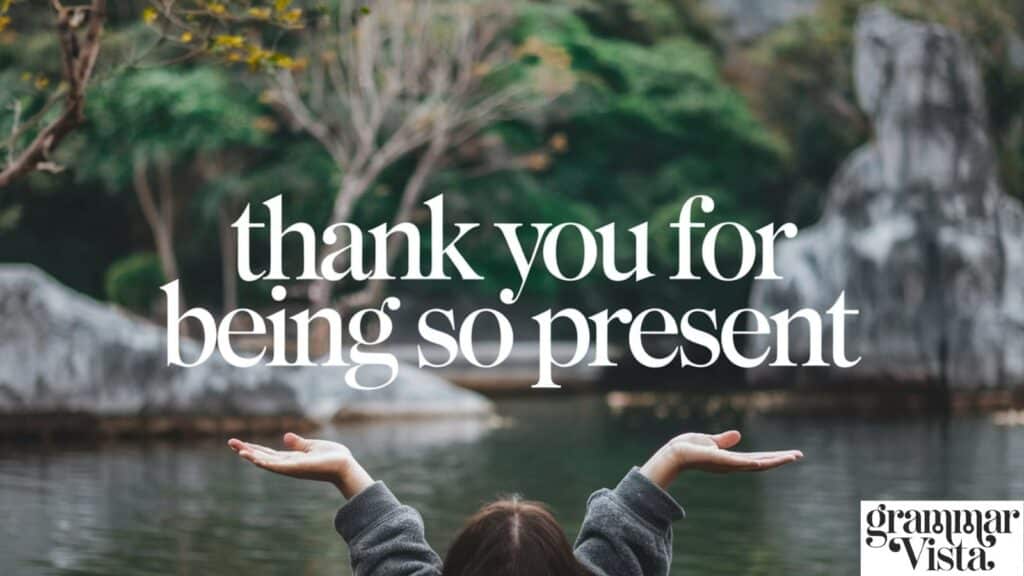
This modern expression acknowledges not just their physical attention, but their mental and emotional presence as well.
Scenario: You’ve just finished sharing some exciting news about your upcoming cookbook featuring recipes from the best Chinese restaurants you’ve visited. Your friend Taylor not only listened but also showed genuine excitement, asking questions and sharing in your joy. You might say:
“Taylor, thank you for being so present as I shared my news. Your enthusiasm and engagement made this moment even more special.”
Why Expressing Gratitude Matters
Now that we’ve explored these alternatives, let’s dive into why it’s so important to acknowledge attention in the first place.
In our fast-paced, distraction-filled world, giving someone your undivided attention is becoming increasingly rare and valuable. When someone chooses to focus on you, whether it’s listening to your ideas, your problems, or your exciting news about finding the best Chinese restaurants in town, they’re giving you a precious gift – their time and mental energy.
By explicitly thanking someone for their attention, you’re doing several important things:
- Acknowledging their effort: Staying focused isn’t always easy. By thanking someone for their attention, you’re recognizing the mental work they’ve put in.
- Encouraging future engagement: People are more likely to give you their attention again if they feel it was appreciated the first time.
- Strengthening relationships: Gratitude fosters positive feelings and can help build stronger connections, whether personal or professional.
- Promoting mindfulness: By highlighting the value of attention, you’re encouraging both yourself and others to be more present in future interactions.
- Ending on a positive note: Whether you’re concluding a presentation, a conversation, or a meal at one of the best Chinese restaurants you’ve discovered, expressing thanks for attention leaves a lasting, positive impression.
Tailoring Your Thanks
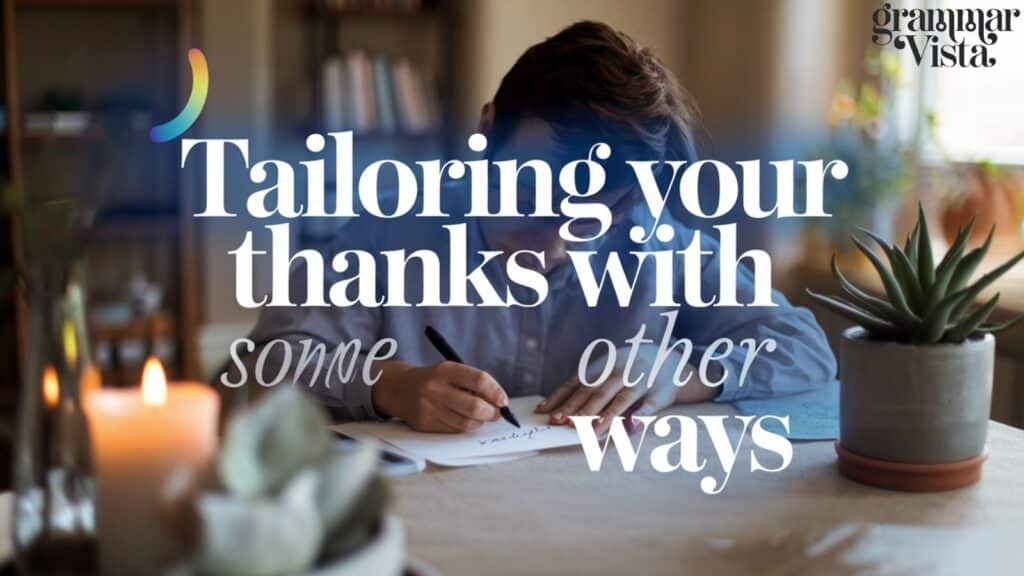
Remember, the key to effective gratitude is sincerity and specificity. Don’t just tack on a generic “thanks for your attention” at the end of every interaction. Instead, take a moment to consider:
- The setting (formal vs. informal)
- Your relationship with the person
- The length and depth of their attention
- Any specific ways they showed their engagement
Then, choose the phrase that best fits the situation and customize it if needed. For instance, instead of just saying “I appreciate your focus,” you might say, “I appreciate your focus, especially how you took notes during the key points about the best Chinese restaurants in Shanghai.”
Read More grammar lessons on GrammarVista
In Conclusion
Expressing gratitude for attention is more than just good manners – it’s a powerful tool for building relationships, encouraging engagement, and creating positive interactions. By expanding your repertoire beyond the basic “thank you for your attention,” you’re adding nuance and sincerity to your expressions of appreciation.
So the next time someone gives you their undivided attention, whether they’re listening to your passion project pitch or your thoughts on the best Chinese restaurants in the neighborhood, take a moment to thank them in a way that truly acknowledges their gift of focus. Your thoughtful expression of gratitude might just be the highlight of their day and the start of a beautiful, attentive relationship.

